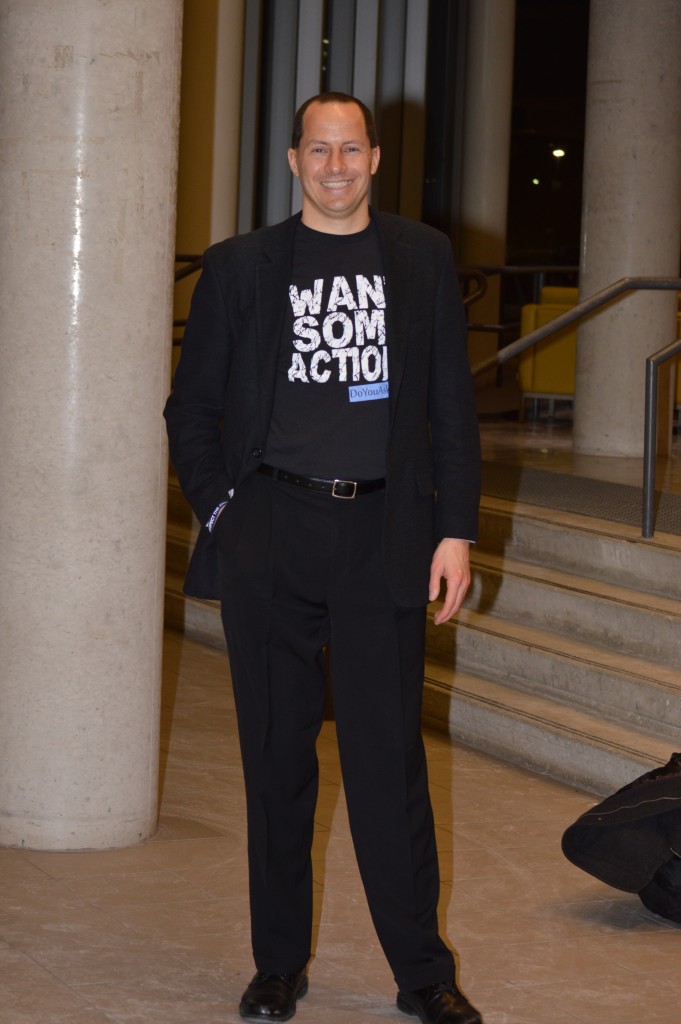
In 1989, while Mike Domitrz was in college, he got a call from his parents telling him that his sister had been raped.
His world instantly changed. He moved closer to home to be near his sister and help her through it. That experience made him realize how amazing she really was.
“Every survivor is a strong and courageous person,” he said.
His sister’s ordeal prompted him to speak out about sexual violence. He started speaking to audiences in 1992, and created “The Date Safe Project” in 2003. He has been all over the world, speaking to over 30,000 people each year.
Domitrz came to Algonquin on Jan. 12 to speak with students about his experience with sexual violence as part of the “Can I Kiss You” event. The goal of the event is to give people usable skills to make the right decisions when it comes to preventing sexual violence.
The event’s title, “Can I Kiss You,” featured prominently in Domitrz’s material. He asked the audience when the right time was to initiate a kiss with their partner. Most responded that their partner would give them “that look,” which indicates a green light.
Domitrz cautioned that this could lead to misreads.
“Body language is the one of the most unreliable forms of communication,” he said.
Instead, Domitrz told the audience the best way to make a move is to simply ask. This gives the other person a choice to say no, instead of having to push someone away during or after the fact.
Domitrz listed a few reasons why people would rather “just go for it” instead of asking. One reason is the fear the other person might say no. This is irrational, according to Domitrz, because even if someone decides to “go for it” he or she can still be rejected.
Some people also worry that asking might kill the mood. Domitrz disagrees, he thinks that this may even enhance the mood between two partners.
Domitrz laments the fact young people are generally not taught to ask first.
“We’ve got no verbal education on how to ask,” he said.
Another major point Domitrz emphasized was the importance of intervening when someone takes advantage of another person. He chronicled several reasons why people don’t intervene in these kinds of situations. He then gave the students a blueprint detailing how to effectively intervene.
Spreading awareness of sexual violence is one of the main goals of this speaking tour, something that has improved since Domitrz first began back in 1992.
“People are much more aware now, but the behaviour doesn’t match the awareness,” he said.
This increased awareness means that survivors feel safer talking about their ordeal. One of the reasons people are more aware of the issue is the fact that it is being brought to their attention more often.
Students seemed to enjoy the night’s events. Alliy Dack, a first-year child and youth work student, felt it was important to attend the event. A relative of Dack’s was sexually assaulted.
“Everyone should know their rights,” she said.


